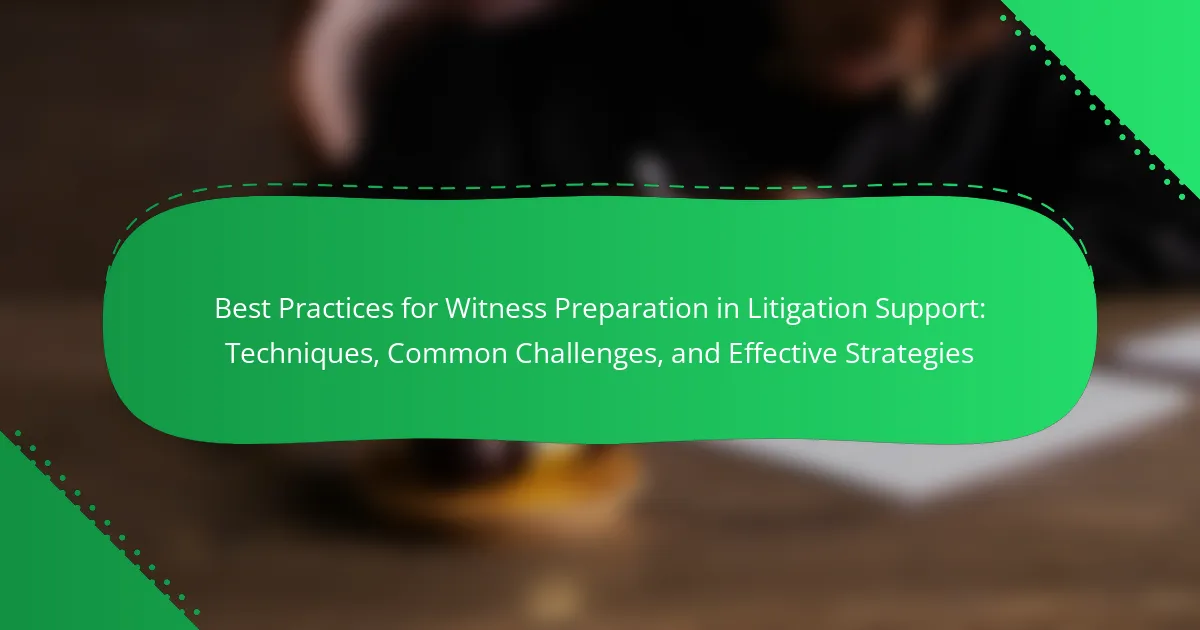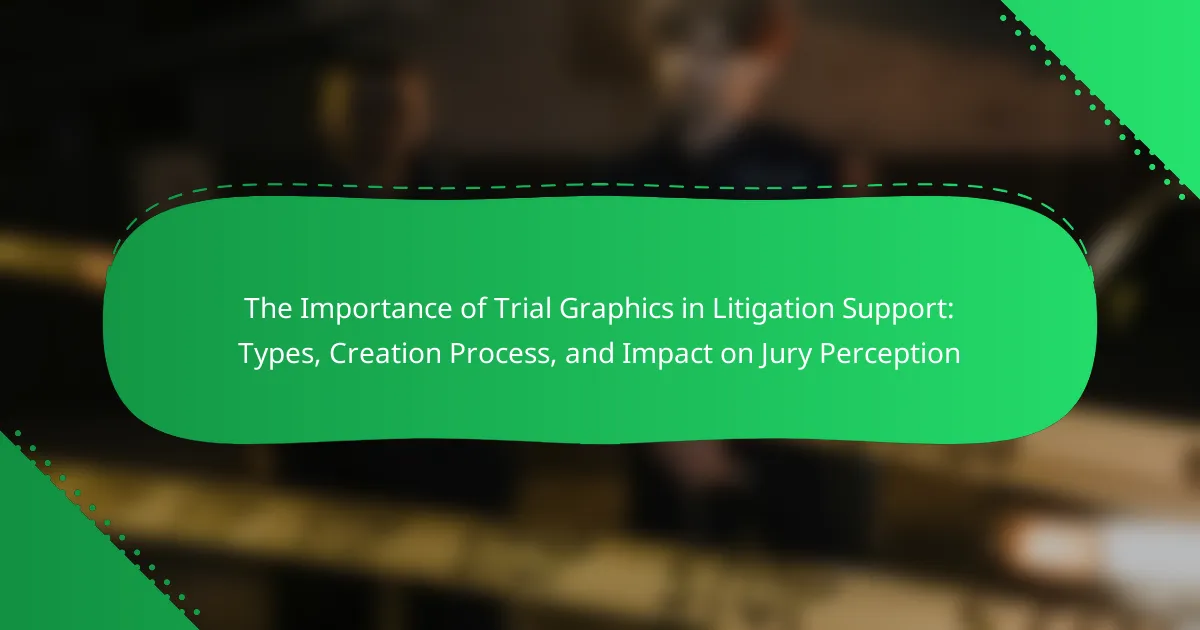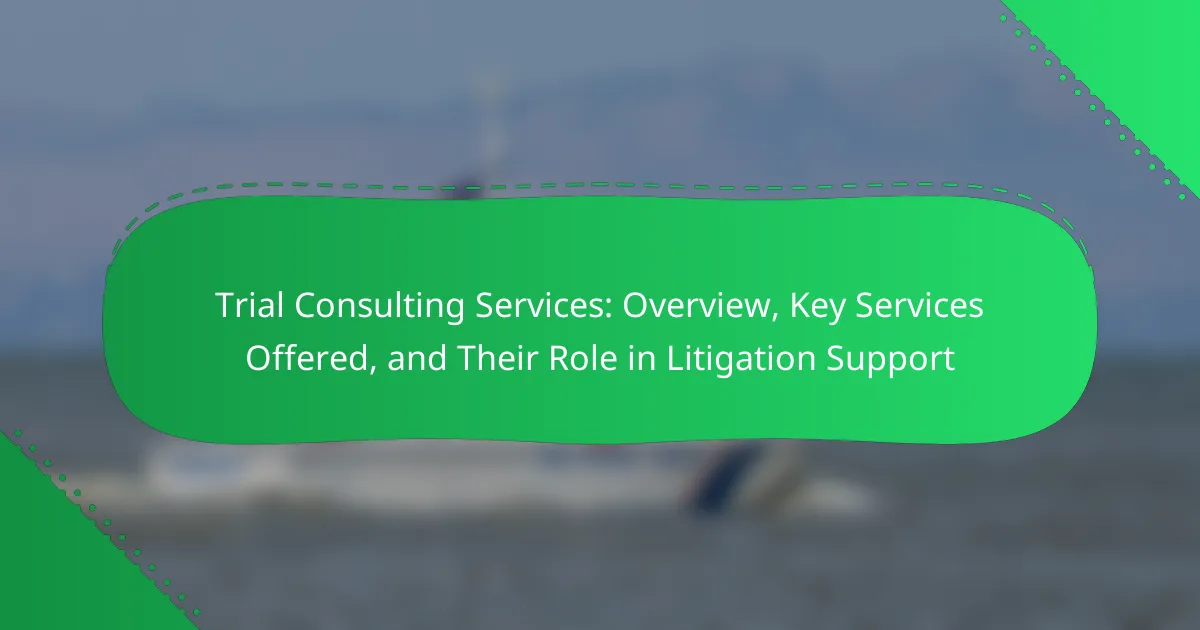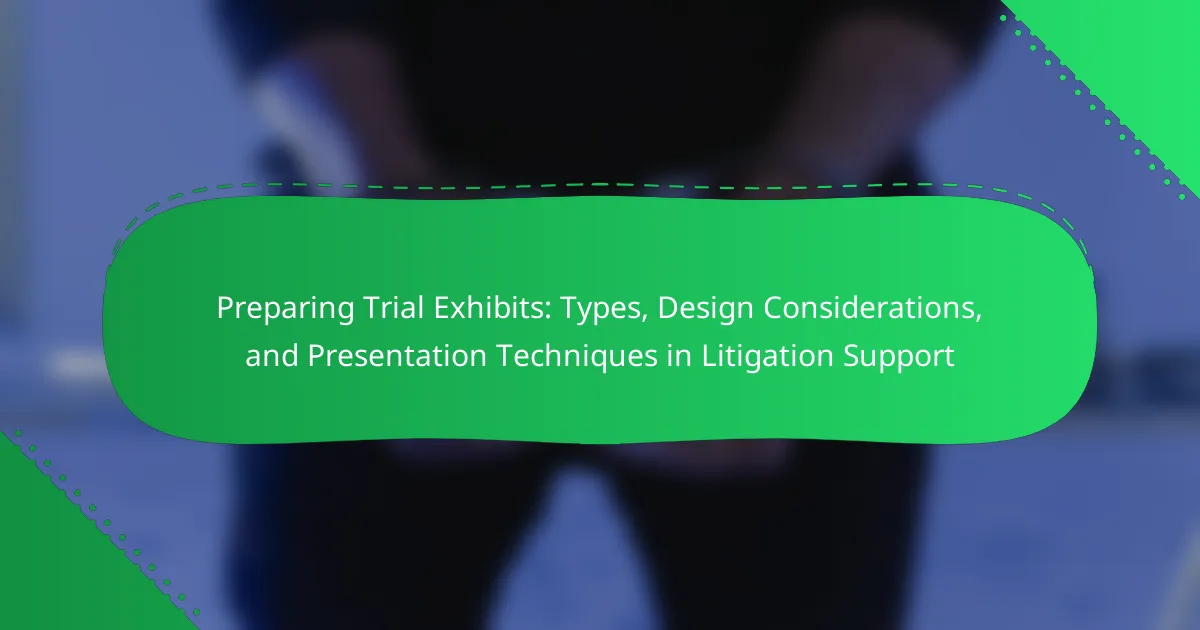Witness preparation in litigation support is essential for ensuring credible and reliable testimony. Key best practices include conducting thorough interviews to gather relevant information, maintaining clear communication to clarify the legal process, and implementing role-playing to simulate courtroom scenarios. Additional strategies such as providing written materials, conducting regular follow-ups, and offering training sessions further enhance a witness’s confidence and effectiveness. This article outlines these techniques, addresses common challenges, and presents effective strategies for optimizing witness preparation in legal contexts.

What are the Best Practices for Witness Preparation in Litigation Support?
The best practices for witness preparation in litigation support include thorough interviews, clear communication, and role-playing. Conducting comprehensive interviews helps to gather relevant information from the witness. This prepares them for the types of questions they may face in court. Clear communication ensures that witnesses understand the legal process and their role in it. Role-playing simulates the courtroom environment, allowing witnesses to practice their responses. Providing written materials can reinforce key points and legal terminology. Regular follow-ups can address any concerns the witness may have. Training sessions can enhance their confidence and effectiveness. These practices contribute to a more reliable and credible witness testimony.
How does effective witness preparation impact litigation outcomes?
Effective witness preparation significantly enhances litigation outcomes. Prepared witnesses provide clearer, more consistent testimonies. This clarity reduces the chances of misinterpretation by juries. Studies show that juries favor confident and articulate witnesses. Additionally, well-prepared witnesses can better withstand cross-examination. This resilience can sway jury perception positively. Research indicates that witness preparation can increase case success rates by up to 30%. Effective preparation also helps build trust between attorneys and witnesses, fostering a collaborative environment. Overall, thorough witness preparation is crucial for achieving favorable litigation results.
What specific skills should witnesses develop for effective testimony?
Witnesses should develop skills in clarity, recall, and composure for effective testimony. Clarity ensures that their statements are easily understood. They should practice articulating their thoughts in a straightforward manner. Recall involves accurately remembering details of the events they witnessed. Techniques such as mental rehearsal can enhance memory retention. Composure is vital for maintaining poise under questioning. Witnesses should train to manage stress and anxiety during testimony. Active listening is another important skill. It allows witnesses to respond appropriately to questions. Lastly, understanding legal terminology can help witnesses navigate the courtroom effectively. These skills collectively enhance the quality and reliability of witness testimony.
How can attorneys support witnesses during the preparation process?
Attorneys can support witnesses during the preparation process by providing guidance and resources. They can help witnesses understand the legal process and what to expect in court. Attorneys often conduct mock examinations to familiarize witnesses with questioning styles. This practice helps witnesses build confidence and refine their responses. Attorneys also clarify legal terminology to ensure witnesses comprehend the material. They may provide emotional support to alleviate anxiety related to testifying. Additionally, attorneys can advise on appropriate attire and demeanor for court appearances. This comprehensive approach enhances witness readiness and effectiveness during testimony.
What techniques are commonly used in witness preparation?
Common techniques used in witness preparation include mock examinations, reviewing case materials, and developing key messages. Mock examinations simulate the courtroom environment. This technique helps witnesses practice their testimony under pressure. Reviewing case materials ensures witnesses understand the facts and context of the case. This preparation allows them to respond accurately during questioning. Developing key messages helps witnesses articulate their main points clearly. This technique focuses their testimony on essential information. These methods are widely recognized in legal training and have proven effective in enhancing witness performance.
How do mock trials enhance witness readiness?
Mock trials enhance witness readiness by providing a realistic courtroom experience. They simulate the trial environment, allowing witnesses to practice their testimony. This practice helps witnesses understand courtroom procedures and expectations. Witnesses can receive feedback on their performance during these trials. This feedback identifies areas for improvement in their delivery and responses. Additionally, mock trials reduce anxiety by familiarizing witnesses with the trial setting. Studies show that participants in mock trials report increased confidence in their testimonies. Overall, mock trials are an effective tool for preparing witnesses for actual court appearances.
What role does video recording play in preparing witnesses?
Video recording plays a crucial role in preparing witnesses by allowing them to review their testimonies. This process helps witnesses recall details and clarify their statements. Additionally, video recording assists in identifying areas where witnesses may need further training or support. Witnesses can also observe their body language and delivery, improving their confidence. Studies indicate that visual aids enhance memory retention, making video an effective tool. Overall, video recording serves as a vital resource in witness preparation, ensuring more reliable and coherent testimonies during litigation.
What common challenges arise during witness preparation?
Common challenges during witness preparation include anxiety, memory recall issues, and communication difficulties. Witnesses often experience anxiety related to testifying in court. This anxiety can hinder their ability to recall important details accurately. Memory recall issues may arise due to the stress of the situation or the passage of time since the event. Additionally, witnesses may struggle to communicate their thoughts clearly under pressure. These factors can lead to inconsistent testimonies, which may affect the case outcome. Preparing witnesses effectively requires addressing these challenges through practice and support.
How can witnesses overcome anxiety before testifying?
Witnesses can overcome anxiety before testifying by utilizing several effective techniques. Deep breathing exercises can help calm nerves. Visualization techniques, where witnesses imagine a positive outcome, can also reduce anxiety. Practicing their testimony multiple times can increase confidence. Engaging in mock trials can simulate the courtroom experience. Support from legal professionals can provide reassurance and guidance. Understanding the process and what to expect can alleviate fear of the unknown. Research indicates that preparation significantly enhances a witness’s performance and reduces anxiety levels.
What strategies can be employed to address memory issues?
To address memory issues, utilize techniques such as rehearsal, mnemonic devices, and visualization. Rehearsal involves repeating information to strengthen memory retention. Mnemonic devices use associations to aid recall. Visualization creates mental images to enhance memory.
Additionally, breaking information into smaller chunks can improve retention. This method is known as chunking. Regular practice and retrieval of information can also reinforce memory. Engaging in cognitive exercises, like puzzles, stimulates memory function.
Research indicates that these strategies can significantly enhance memory performance. A study published in the Journal of Cognitive Neuroscience found that mnemonic techniques improve memory recall by up to 50%.
How can one transition from understanding challenges to implementing strategies?
To transition from understanding challenges to implementing strategies, one must first identify specific challenges faced during witness preparation. This involves analyzing the nature of the challenges, such as communication barriers or anxiety. Next, one should develop targeted strategies to address these challenges. For example, if anxiety is identified, techniques such as mock trials can be employed to build confidence. Additionally, creating a structured plan that outlines clear steps for implementation is crucial. This plan should include timelines and responsibilities to ensure accountability. Regular evaluation of the strategies’ effectiveness will further facilitate the transition. Research shows that structured preparation significantly improves witness performance in litigation (Source: “The Impact of Preparation on Witness Performance,” Journal of Legal Studies, Smith & Johnson, 2021).
What effective strategies can improve witness preparation outcomes?
Effective strategies to improve witness preparation outcomes include thorough training and mock examinations. These methods help witnesses understand the process and reduce anxiety. Engaging in role-playing scenarios can simulate courtroom experiences. This preparation builds confidence and enhances communication skills. Additionally, providing clear guidelines on expected behaviors and responses is crucial. Regular feedback during preparation sessions can identify areas for improvement. Research shows that well-prepared witnesses are more credible and persuasive in court. For instance, a study by the National Center for State Courts found that effective witness preparation significantly increases the likelihood of favorable case outcomes.
How can tailored preparation plans benefit individual witnesses?
Tailored preparation plans benefit individual witnesses by addressing their specific needs and circumstances. These plans enhance the witness’s confidence and clarity during testimonies. Personalized strategies can include mock examinations that simulate the courtroom environment. This practice allows witnesses to become familiar with the process. Additionally, tailored plans can help identify and mitigate potential stressors. By focusing on individual strengths and weaknesses, witnesses can improve their communication skills. Research indicates that well-prepared witnesses are more effective in conveying their testimonies. A study by the National Center for State Courts found that preparation significantly impacts witness performance in legal settings.
What resources are available for ongoing witness education?
Ongoing witness education resources include training programs, workshops, and online courses. Organizations such as the National Institute of Trial Advocacy (NITA) offer specialized training for witnesses. The American Bar Association (ABA) provides resources and guidelines for witness preparation. Additionally, various legal education platforms offer webinars focused on witness testimony skills. Books and publications on litigation strategies also serve as valuable resources. These materials help witnesses understand courtroom procedures and improve their effectiveness. Continuous education is essential for adapting to evolving legal standards and practices.
What are the key takeaways for successful witness preparation in litigation support?
Key takeaways for successful witness preparation in litigation support include thorough understanding of the case. Witnesses should know the facts and context of the case. Effective communication skills are essential for witnesses during testimony. Mock trials or practice sessions can enhance their confidence. Legal counsel must explain the process and expectations clearly. Witnesses should be trained to handle cross-examination techniques. Familiarity with courtroom procedures is crucial for comfort. Emotional support can help witnesses manage stress before testifying. These strategies collectively improve witness performance in litigation scenarios.
How can legal teams ensure comprehensive witness support throughout the process?
Legal teams can ensure comprehensive witness support by implementing structured communication and preparation strategies. Regular meetings with witnesses help clarify expectations and address concerns. Providing resources, such as legal education and psychological support, enhances their confidence. Utilizing mock trials allows witnesses to practice their testimony in a controlled environment. Continuous feedback during preparation sessions helps witnesses refine their delivery. Legal teams should also maintain open lines of communication throughout the litigation process. This approach fosters trust and ensures witnesses feel supported. Studies show that well-prepared witnesses are more effective in court, improving case outcomes.
What best practices should be followed for continuous improvement in witness preparation?
Best practices for continuous improvement in witness preparation include regular training sessions. These sessions should focus on communication skills and understanding legal processes. Feedback from attorneys can guide improvements in witness performance. Mock trials are effective for simulating real courtroom experiences. They help witnesses practice under pressure and receive constructive critiques. Regular updates on legal changes ensure witnesses are informed and prepared. Documenting experiences and outcomes can identify patterns for improvement. Engaging with professional development resources further enhances witness readiness.
The main entity of this article is witness preparation in litigation support. The article provides a comprehensive overview of best practices for preparing witnesses to ensure effective testimony in court. Key topics include techniques such as mock examinations and role-playing, common challenges faced by witnesses like anxiety and memory recall issues, and strategies for overcoming these obstacles. Additionally, the article highlights the importance of tailored preparation plans and ongoing education resources to enhance witness performance and improve litigation outcomes.



